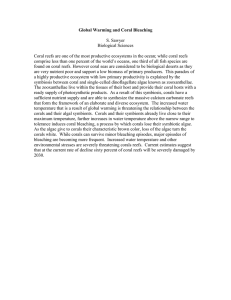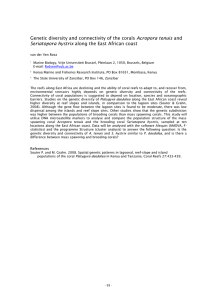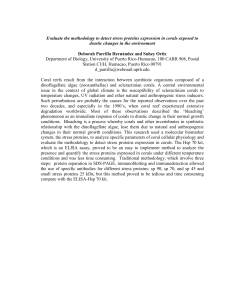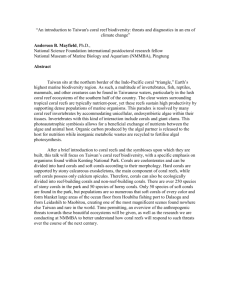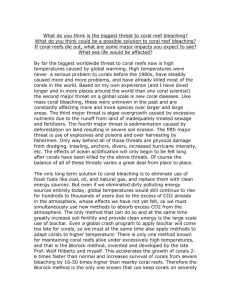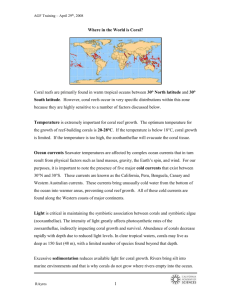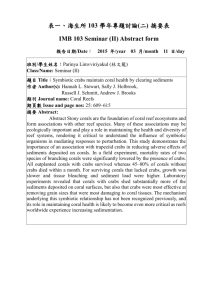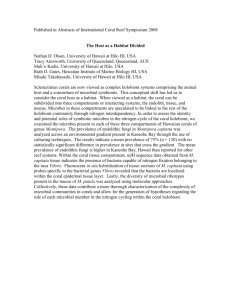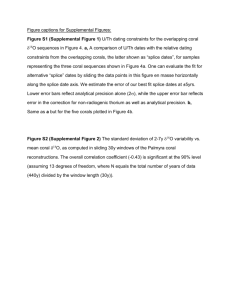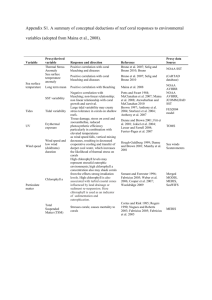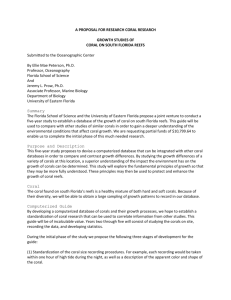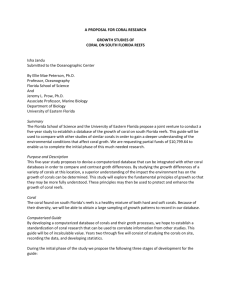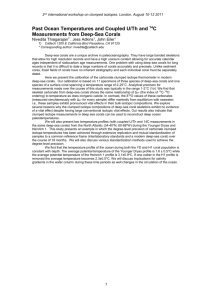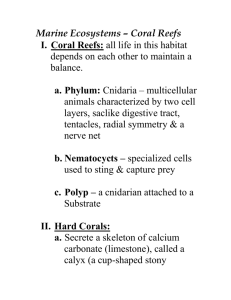Media Release
advertisement
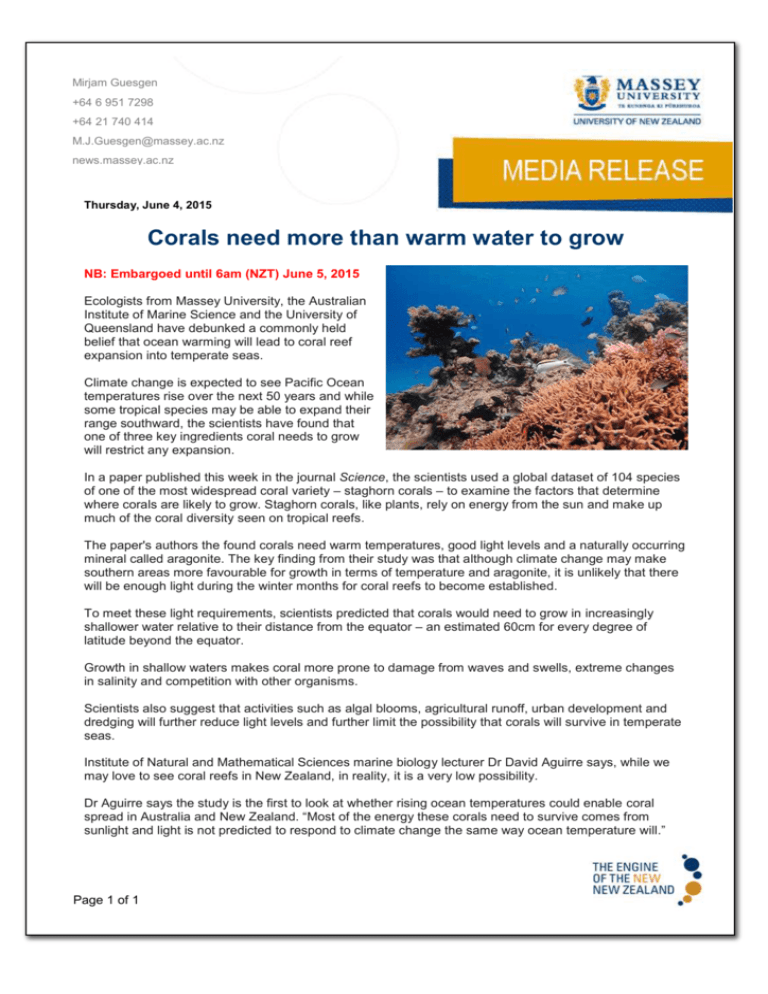
Mirjam Guesgen +64 6 951 7298 +64 21 740 414 M.J.Guesgen@massey.ac.nz news.massey.ac.nz Thursday, June 4, 2015 Corals need more than warm water to grow NB: Embargoed until 6am (NZT) June 5, 2015 Ecologists from Massey University, the Australian Institute of Marine Science and the University of Queensland have debunked a commonly held belief that ocean warming will lead to coral reef expansion into temperate seas. Climate change is expected to see Pacific Ocean temperatures rise over the next 50 years and while some tropical species may be able to expand their range southward, the scientists have found that one of three key ingredients coral needs to grow will restrict any expansion. In a paper published this week in the journal Science, the scientists used a global dataset of 104 species of one of the most widespread coral variety – staghorn corals – to examine the factors that determine where corals are likely to grow. Staghorn corals, like plants, rely on energy from the sun and make up much of the coral diversity seen on tropical reefs. The paper's authors the found corals need warm temperatures, good light levels and a naturally occurring mineral called aragonite. The key finding from their study was that although climate change may make southern areas more favourable for growth in terms of temperature and aragonite, it is unlikely that there will be enough light during the winter months for coral reefs to become established. To meet these light requirements, scientists predicted that corals would need to grow in increasingly shallower water relative to their distance from the equator – an estimated 60cm for every degree of latitude beyond the equator. Growth in shallow waters makes coral more prone to damage from waves and swells, extreme changes in salinity and competition with other organisms. Scientists also suggest that activities such as algal blooms, agricultural runoff, urban development and dredging will further reduce light levels and further limit the possibility that corals will survive in temperate seas. Institute of Natural and Mathematical Sciences marine biology lecturer Dr David Aguirre says, while we may love to see coral reefs in New Zealand, in reality, it is a very low possibility. Dr Aguirre says the study is the first to look at whether rising ocean temperatures could enable coral spread in Australia and New Zealand. “Most of the energy these corals need to survive comes from sunlight and light is not predicted to respond to climate change the same way ocean temperature will.” Page 1 of 1

